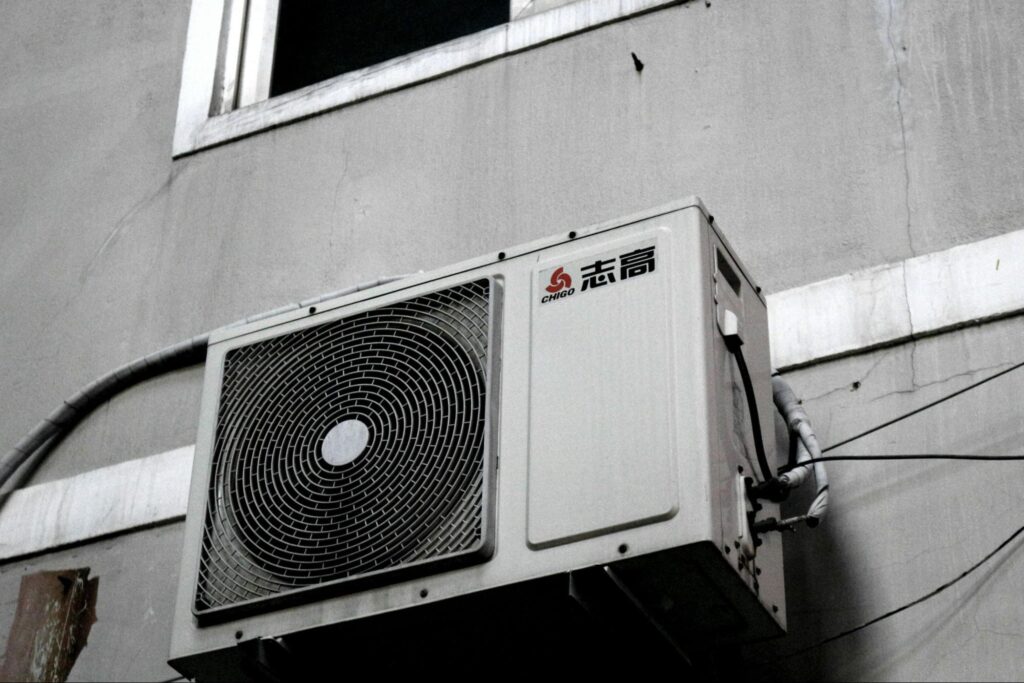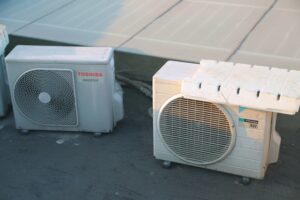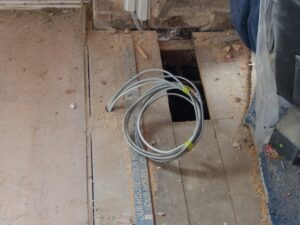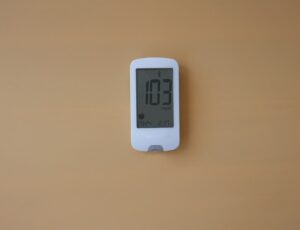When was the last time you checked the filter in your window air conditioner?
If it’s been a while, it might be time for a replacement. Have you noticed a decrease in your AC’s performance lately?
Regularly replacing your AC filter is crucial for maintaining good air quality and ensuring your unit runs efficiently. Clean filters help your AC work better and keep your energy bills in check.
Wouldn’t it be great if something so simple could lead to big savings over time?
At Excel Mechanical, we specialize in HVAC and plumbing services, offering top-notch solutions for both homes and businesses. Whether you need a quick filter replacement or a more comprehensive service, don’t you want a team that can handle all of it with ease?
Our team is dedicated to providing high-quality systems tailored to your needs and budget. With Excel Mechanical, you can rest assured that your AC will perform optimally, ensuring comfort all year round.
In this blog, you will learn:
- Why regularly replacing your window AC filter is essential for efficiency
- The different types of window AC filters available
- How to determine the right time for replacement and the benefits it offers
Let’s dive into the importance of replacing your window AC filter and how it can enhance your home’s air quality and comfort.
Importance of Replacing Window AC Filters
Changing your window AC filter is crucial for keeping your air clean.
- Clean filters trap dust, pollen, and other particles, improving indoor air quality and lowering allergy risks.
- Regular replacement can boost your AC’s performance. A clogged filter makes your system work harder. This can increase energy bills and reduce the lifespan of your unit.
- A fresh filter will help your AC unit cool more effectively and ensure consistent airflow, which helps keep your rooms at a comfortable temperature.
- Timely filter changes can even save you money. By replacing filters, you prevent costly repairs and decrease energy use.
Types of Window AC Filters
There are several types of window air conditioner filters to consider.
- Washable filters are popular because they can be cleaned and reused. Simply remove them, wash them, and let them dry before placing them back. They are cost-effective but require regular maintenance to ensure efficiency.
- Fiberglass filters are another option. These are disposable and designed to trap larger particles. They are inexpensive but need frequent replacement. Their main advantage is ease of use.
- For those looking for better filtration, pleated filters might be the right choice. Made from polyester or cotton, these filters trap smaller particles and last longer than fiberglass filters. They help improve your indoor air quality.
- Electrostatic filters use static electricity to capture particles. These can be either disposable or washable. They effectively capture small particles and can improve air quality in your home.
Determining the Right Time for Replacement
Knowing when to replace your window AC filter can keep your unit running efficiently.
A key indicator is airflow. If the airflow weakens, it might be time for a new filter. You should also check the filter after a certain number of hours of use.
Signs to Watch For:
- Reduced cooling efficiency
- Increased energy bills
- Visible dirt and dust on the filter
It’s essential to regularly inspect the filter. If it looks clogged or damaged, a replacement is necessary. Typically, changing the filter every 60-90 days is good practice. In areas with high dust or pollen, consider monthly checks.
Benefits of Replacement:
- Improved air quality
- Longer lifespan for your AC unit
- Lower maintenance costs
Step-by-Step Guide to Replacing Window AC Filters
Replacing window AC filters is essential for maintaining good air quality and efficiently running your AC. Below are the critical steps, including safety measures and materials needed.
Safety Precautions
Before beginning, make sure the AC unit is turned off and unplugged. This prevents any accidental electrical shock or injury.
Keep your workspace clear and well-lit to avoid tripping or dropping anything. You might encounter dust buildup, so wearing a dust mask can protect your respiratory system. Safety goggles can keep dust and debris out of your eyes.
If the unit is positioned high up, ensure you have a sturdy ladder. Never climb on windowsills or unstable surfaces.
Tools and Materials Needed
Before starting, gather all required materials.
You will need a replacement filter that matches the size and model of your AC unit. Check the model number on the AC or consult the manual to find the correct filter size.
You’ll need a screwdriver, as some units may be secured with screws. Have a damp cloth or vacuum ready to clean dust around the filter area.
A soft-bristle brush may also help remove residue without damaging the unit.
Removing the Old Filter
To remove the old filter, first locate the filter panel. This is typically found at the front or side of the unit.
If necessary, use a screwdriver to open the panel. Carefully slide out the filter. If it resists, gently shake or wiggle it free. Avoid forcing it out to prevent damage to the unit.
Once removed, inspect the space for any dust buildup, which should be cleaned before installing the new filter.
Installing the New Filter
With the old filter removed, take your new filter and insert it into the designated space.
Ensure it is aligned correctly according to any arrows or guides on the filter. Gently slide the filter into position. If the filter has specific instructions, such as a particular airflow direction, follow these closely.
Secure the filter by closing the panel and tightening screws if needed to keep it in place.
Disposal of the Used Filter
Proper disposal of the used filter is essential.
Place the old filter in a plastic bag to contain dust and debris. Check local disposal guidelines to ensure compliance with environmental regulations. Some filters may be recyclable, so consider checking if a recycling option is available in your area.
Always wash your hands after handling the old filter to remove dust or allergens.
Choosing the Right Replacement Filter
Several factors require attention when replacing your window AC filter. The right size, efficiency rating, and material type are crucial to keeping your system running smoothly.
Filter Sizes
Choosing the correct filter size is the first step in finding the right replacement.
Filters typically come in standard sizes, but always check the dimensions of your AC unit. A mismatched size could lead to poor performance. The size of your existing filter should be written on the frame.
A snug fit ensures efficient operation. Consult your AC unit’s manual if you cannot find the measurement. Standard sizes are usually easy to find at most stores. Measure carefully for a perfect fit.
Filter Ratings and Efficiency
Filter efficiency is measured by MERV ratings, standing for Minimum Efficiency Reporting Value.
Higher MERV ratings signify better filtration of dust, pollen, and other particles. Residential filters usually range from MERV 1 to 12.
Consider your indoor air quality needs. A higher rating is beneficial for allergy sufferers. While higher MERV ratings filter more particles, they can also restrict airflow if your system isn’t designed for them.
Choose wisely based on your needs and unit capabilities.
Material Considerations
The material of a filter influences both performance and cost.
Common materials include fiberglass, pleated polyester, and high-efficiency particulate air (HEPA).
Fiberglass filters are inexpensive and provide basic filtration. Pleated filters, made from polyester, offer better filtration for dust and allergens. Though typically used in specialized systems, HEPA filters offer superior dust and particle removal from the air.
Maintenance Tips for Window AC Filters
Keeping your window AC filters clean is essential for efficient cooling and air quality. Regular maintenance can extend the life of your air conditioning unit and improve energy efficiency.
- Regular Cleaning: Clean your window AC filters every month. Remove the filter, wash it with soap and water, and let it dry completely before reinstalling.
- Inspect for Damage: Check filters for signs of wear, such as tears or holes. If damaged, replace them promptly to avoid decreased air quality and system efficiency.
- Seasonal Maintenance: Check the filters and clean them thoroughly at the start and end of each cooling season. This can prevent particle build-up and dust accumulation.
- Use Quality Replacements: When replacement is necessary, choose filters that fit your unit. High-quality filters trap more particles, contributing to a healthier indoor environment.
If you’re unsure about maintaining your window AC filters, consider getting help from professionals at Excel Mechanical. We offer HVAC and plumbing services designed to meet your specific needs and budget, ensuring your system is well-maintained.
Troubleshooting Common Filter Issues
Now, let’s talk about some troubleshooting tips for common filter issues.
- Dirty Filters: Dirty filters are one of the most common issues. If your AC is not cooling effectively, check the filter. Remove the filter and inspect it for dust and debris. A simple cleaning or replacement can often restore function.
- Clogged Filters: Clogged filters can restrict airflow, making your system work harder and leading to higher energy bills. Check for any visible clogs and clear them out. Regular maintenance can prevent this problem.
- Wrong Filter Size: Using the wrong size filter can lead to poor performance. Measure your current filter and ensure a proper fit next time you replace it. An ill-fitting filter can allow dust to bypass the filter and enter your space.
- Filter Wear and Tear: Filters can wear out over time and become ineffective. If you notice physical damage or holes, it’s time to replace the filter. This ensures your AC runs efficiently and keeps the air clean.
- Mold or Mildew: Mold or mildew can develop on filters exposed to moisture. Inspect the filter to see if there’s a musty smell when the AC is running. Replacing moldy filters is essential for maintaining healthy air quality in your home.
Maintain your AC system with our professional help to ensure lasting performance.
Benefits of Regular Filter Replacement
Replacing your window AC filters regularly has many advantages.
- It ensures your air conditioner runs smoothly, and clean filters let air flow freely, improving cooling efficiency.
- Regular filter changes help keep your air clean. They trap dust, pollen, and other particles. This can reduce allergies and improve breathing.
- Clean filters make your AC work better. They help lower energy bills. When air flows easily, your system doesn’t have to work as hard, saving energy.
- Changing filters can extend your AC’s life. Less wear and tear means fewer repairs and a longer lifespan for your unit.
- Replacing filters on time keeps your environment healthy. It helps prevent mold and bacteria growth inside your AC. This contributes to better air quality.
Professional Versus DIY Replacement
Choosing between professional help and DIY depends on your skills and needs.
If you like doing things yourself, replacing a window AC filter can be fun. You just need the filter and basic tools.
For peace of mind and great results, Excel Mechanical is your best choice. Our experts ensure the job is done right, focusing on quality and your budget.
DIY
- Cost-Effective: Save money by handling the replacement.
- Learning Experience: Gain skills and satisfaction from doing it yourself.
- Time Commitment: Takes time, especially for beginners.
Professional Service
- Expertise: Benefit from professional knowledge and experience.
- Reliability: Ensure the filter is correctly installed.
- Time-Saving: Quick and hassle-free process.
With Excel Mechanical, you’re guaranteed exceptional HVAC and plumbing services. Our team delivers top-notch work tailored to your specific needs. Choose us for excellence and value in every job.
Important Points
- Tools Needed for DIY: Screwdriver, new filter, gloves.
- DIY Risks: Incorrect installation can affect performance.
- Call for Help if Needed: Never hesitate to seek professional assistance.
Taking care of your window AC filters is essential. Whether you go DIY or choose a professional, your comfort and convenience come first.
Frequently Asked Questions
We know that replacing your window AC filter can seem like a small task, but it makes a world of difference for your unit’s performance and the air quality in your home. Have you ever wondered if you’re replacing the filter often enough? Let’s dive into some common questions to help you keep your AC running smoothly and efficiently.
How do I determine the correct size filter for my window AC unit?
To find the right size, check your AC unit’s specifications, usually found in the manual or on the unit itself. If unavailable, carefully measure the current filter. Record the dimensions accurately to ensure a proper fit.
Where can I find a quality replacement filter for my window air conditioner?
Quality filters are available at home improvement stores and online retailers. Look for reliable brands that match your unit’s specifications. Consider purchasing from trusted professionals like Excel Mechanical to ensure you get the best fit and quality.
How frequently should I replace the filter in my window AC to ensure optimal performance?
It is recommended that the filter be changed every three months, though more frequent changes may be needed during high-use periods or in dusty environments. Dirty filters can reduce efficiency, making your AC work harder and affecting airflow.
Are there reusable filters available for window air conditioners, and how do they perform?
Reusable filters are available and can be washed and reused for convenience. They are effective in trapping large particles and can save money over time. Their effectiveness varies, so follow care instructions for the best performance.
Can a HEPA filter be used in a window air conditioning unit, and what are the benefits?
If your unit is compatible, HEPA filters can be used. They trap very small particles, improving indoor air quality. These filters are especially beneficial for allergy sufferers, as they capture allergens like dust and pollen.
What factors should be considered when choosing the best filter for my window AC?
Consider factors like your budget, the availability of the filter type, and your air quality needs. Filters with higher efficiency ratings remove more particles. Excel Mechanical can assist you in selecting a filter that balances cost and performance while meeting your specific needs.




